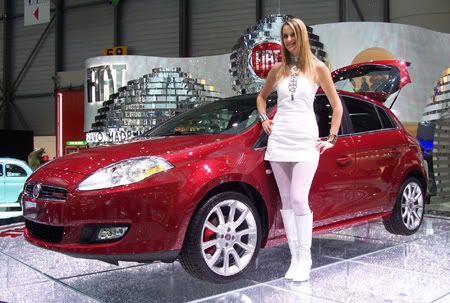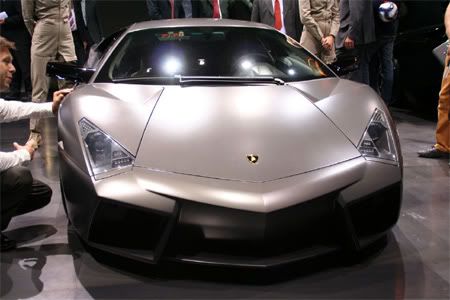


An automobile or motor car is a wheeled motor vehicle used for transporting passengers, which also carries its own engine or motor. Most definitions of the term specify that automobiles are designed to run primarily on roads, to have seating for one to eight people, to typically have four wheels, and to be constructed principally for the transport of people rather than goods. However, the term automobile is far from precise, because there are many types of vehicles that do similar tasks.
As of 2002, there were 590 million passenger cars worldwide (roughly one car per eleven people). Around the world, there were about 806 million cars and light trucks on the road in 2007; they burn over 260 billion gallons of gasoline and diesel fuel yearly. The word automobile comes, via the French automobile, from the Ancient Greek word αὐτός (autós, "self") and the Latin mobilis ("movable"); meaning a vehicle that moves itself, rather than being pulled or pushed by a separate animal or another vehicle. The alternative name car is believed to originate from the Latin word carrus or carrum ("wheeled vehicle"), or the Middle English word carre.
Established alternatives for some aspects of automobile use include public transit (buses, trolleybuses, trains, subways, monorails, tramways), cycling, walking, rollerblading, skateboarding, horseback riding and using a velomobile. Car-share arrangements and carpooling are also increasingly popular–the U.S. market leader in car-sharing has experienced double-digit growth in revenue and membership growth between 2006 and 2007, offering a service that enables urban residents to "share" a vehicle rather than own a car in already congested neighborhoods. Bike-share systems have been tried in some European cities, including Copenhagen and Amsterdam. Similar programs have been experimented with in a number of U.S. Cities. Additional individual modes of transport, such as personal rapid transit could serve as an alternative to automobiles if they prove to be socially accepted.
As of 2002, there were 590 million passenger cars worldwide (roughly one car per eleven people). Around the world, there were about 806 million cars and light trucks on the road in 2007; they burn over 260 billion gallons of gasoline and diesel fuel yearly. The word automobile comes, via the French automobile, from the Ancient Greek word αὐτός (autós, "self") and the Latin mobilis ("movable"); meaning a vehicle that moves itself, rather than being pulled or pushed by a separate animal or another vehicle. The alternative name car is believed to originate from the Latin word carrus or carrum ("wheeled vehicle"), or the Middle English word carre.
Established alternatives for some aspects of automobile use include public transit (buses, trolleybuses, trains, subways, monorails, tramways), cycling, walking, rollerblading, skateboarding, horseback riding and using a velomobile. Car-share arrangements and carpooling are also increasingly popular–the U.S. market leader in car-sharing has experienced double-digit growth in revenue and membership growth between 2006 and 2007, offering a service that enables urban residents to "share" a vehicle rather than own a car in already congested neighborhoods. Bike-share systems have been tried in some European cities, including Copenhagen and Amsterdam. Similar programs have been experimented with in a number of U.S. Cities. Additional individual modes of transport, such as personal rapid transit could serve as an alternative to automobiles if they prove to be socially accepted.













No comments:
Post a Comment